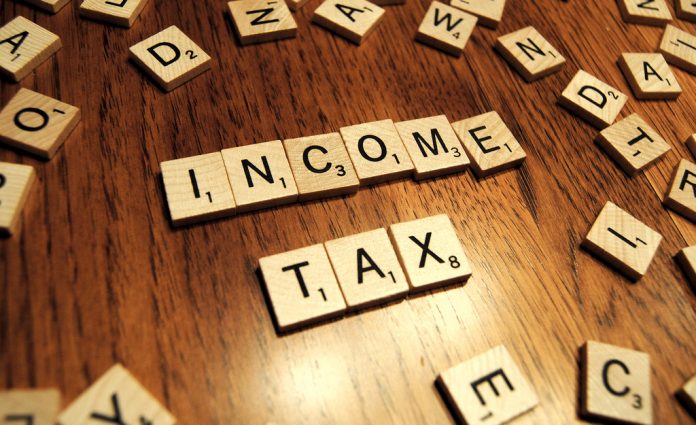This article is written by Tarini Kalra, a student of BBA LL.B. from Fairfield Institute of Management and Technology, GGSIPU. The present article provides exhaustive details about the major amendments and recent developments to income tax applicable for the annual year 2022-23.
This article has been published by Sneha Mahawar.
Table of Contents
Introduction
India’s yearly budget is known as the Union Budget or the Annual Financial Statement. The Union Budget is addressed in Article 112 as estimates of expenditures included in the yearly financial statement. The Minister of Finance presents the Union Budget Bill. The Union Budget, 2022 was proposed on 1st February 2022 and approved on 29th March 2022. The key features of Union Budget, 2022 focused on growth and all-inclusive welfare, promoting technology-enabled development, energy, transition and climate action, a virtuous cycle starting from private investment and crowded in by public capital investment. The Union Budget, 2022 prioritised four fields such as PM GatiShakti, inclusive development, productivity enhancement and investment, sunrise opportunities, energy transition and climate action and investments of finances. The new income tax amendments are applicable for the financial year 1st April 2022 to 31st March 2023.
Major changes in income tax effective from 1st April 2022
The major changes in income tax effective from 1st April 2022 are mentioned as under:
New provision for ITR updating
A new provision is included that enables taxpayers to file a revised return in their income tax returns that contain errors or inaccuracies. Within two years, taxpayers are permitted to file amended returns for the purpose of fixing mistakes. According to the newly incorporated provisions in the Income Tax Act, 1961, one can revise returns for FY 2019-20 or subsequent assessment years.
Virtual digital assets taxation scheme
A virtual asset is a digital instrument for a means of exchange that can be digitally traded, transferred, or used as payment or investment. In the Finance Bill, 2022, the government announced a 30% tax along with 1% of TDS on virtual digital assets if there is any commercial exchange. Section 2(47A) was inserted defining virtual digital assets. The section defines a virtual digital asset as any data, code, number, or token produced using cryptographic techniques that can be transferred, stored, exchanged or traded electronically, acts as a store of value or a unit of account, and can be used in financial transactions or investments not limited to investment schemes, and can be exchanged for value with or without payment. It includes non-fungible assets and excludes digital currency issued by the central bank of India or foreign.
Non-fungible assets
The non-fungible assets (NFT) are similar to digital currency as they are made by the blockchain method. The distinction between these assets is that non-fungible assets have unique identification numbers and metadata that distinguish them from each other as well. NFTs are non-replaceable because of the unique identification number and different values of amount. One acquires “bragging rights” in the form of ownership when one buys an NFT.
Co-operative societies AMT and reduction of surcharge rates
A group of people who get together voluntarily with the goal of cooperating and promoting their economic interests is known as a cooperative society. A “cooperative society” is a society that has been registered in accordance with the Cooperative Societies Act, 1912 or any other declared law that is currently in effect in any State for the registration of cooperative societies, according to Section 2(19) of the Income Tax Act, 1961. In order to give cooperatives an equal playing field with businesses, the central government reduced the alternative minimum tax rate and surcharge for cooperatives in the Union Budget 2022–23. Cooperative societies are currently obligated to pay an Alternate Minimum Tax of 18.5% as per the provision of Section 115JC of the Income Tax Act, 1961. Companies, however, pay 15% at the same rate. For cooperative societies having a total turnover of more than Rs 1 crore and up to Rs 10 crores, the surcharge has been decreased from 12% to 7%.
Penalty for claiming surcharge and cess as expenditure in preceding years
In the case of Commissioner of Income Tax v. K. Srinivasan (1971), the contention to levy surcharge and additional surcharge in the proportion to the total income along with income tax was raised. The Hon’ble Supreme Court observed that “surcharge is to charge in addition or to subject to an additional or extra charge and proceeds of the surcharge are exclusively assigned to the Union.”
It was established that surcharge and cess are identical to tax in the Finance Bill on the basis of decisions from several courts and hence not permissible. In circumstances where the deduction has been claimed and allowed, it was urged that the tax authorities must be given the right to recognise it as a mistake and to amend the orders. For this purpose, a 4-year limitation term commencing March 31, 2022 was proposed. For the purposes of levying a penalty, the taxpayers’ claim may be considered under-reporting of income. It also protects the taxpayer from penalties when the taxpayer suo moto seeks such re-computation and pays the tax.
NPS deduction to the state government employees
NPS stands for National Pension Scheme. The National Pension System (NPS) is a voluntary defined contribution retirement savings programme created to provide subscribers with an adequate retirement income by methodical saving during their work life. Earlier, NPS was available for the central government and now employees of the state government may claim expenses under Section 80CCD(2) with an overall ceiling of Rs. 1.5 lakhs under Section 80CCE of the Income Tax Act, 1961. For employees of state governments, the maximum tax deduction allowed by NPS has increased from 10% to 14% of their basic salary and dearness allowance.
Persons with disabilities are eligible for tax relief
Section 80DD is inserted and it outlines tax deductions to the taxpayer’s disabled family members, whereas Section 80U provides deductions to the individual taxpayer with a disability. Section 80DD applies if a taxpayer pays a set amount as an insurance premium to care for a dependent disabled person. The deduction limitations under Section 80DD are the same as those under Section 80U. A dependant refers to the assessee’s siblings, parents, spouse, children, or a member of a Hindu Undivided Family. NRIs are not eligible to claim a deduction under Section 80DD of the Income Tax Act, 1961. Where the disability is more than 40% and less than 80% the deduction of Rs 75,000 is allowed and where the disability is more than 80% the deduction of Rs 1,25,000 is allowed. The following disabilities are covered under Section 80DD of the Income Tax Act, 1961:
- Hearing impairment,
- Mental retardation,
- Mental illness,
- Autism,
- Cerebral palsy,
- Blindness,
- Low vision,
- Leprosy-cured,
- Locomotor disability.
Extension of start-ups tax incentive period
The period of incorporation for eligible start-ups was extended by one year until March 31, 2023, with the goal of providing tax breaks to more entrepreneurs in the country. Eligible start-ups created before March 31, 2022, received a tax break for 3 consecutive years out of 10 years after incorporation.
Tax relief on Covid-19 treatment expenses
The Finance Bill has stated that income tax would not be levied on any sum received by a taxpayer for medical treatment from an employer or any other person for Covid-19 treatment for fiscal years 2019-20 and subsequent years.
Ex-gratia payments obtained by family members of a person from the employer of such person or another person on the death of the person on account of Covid-19 during FY 2019-20 and later years are exempted to the taxpayers. It was also stated that the exemption would be granted without regard to the amount received from the employer and would be restricted to Rs 10 lakh in aggregate for the amount received from any other people within 12 months from the date of death.
Section 17(2) was amended and a new sub-clause in the proviso was added stating that any amount paid by the employer in relation to any expense incurred by the employee in relation to his medical treatment or the treatment of any member of his family in respect of any illness related to Covid-19 shall not be forming part of “perquisite” subject to such conditions as may be notified by the Central Government.
Additionally, it was suggested that the proviso of Section 56(2)(x) be modified and two new clauses were added to ensure that:
- Any sum of money received by an individual from any person as expenditure incurred by him on his medical treatment or the treatment of any family member in respect of any illness related to Covid-19 as may be notified by the Central Government in this regard shall not be the income of the individual.
- Any amount received by a member of a deceased person’s family from the deceased person’s employer without restriction, or from another person or persons to the extent that sum of money does not exceed ten lakh rupees, where the deceased person’s cause of death was an illness related to Covid-19 and the payment is received within twelve months of the date of the deceased person’s death, or subject to any additional conditions that may be notified by the Central Government shall not be the income of such person.
For the purpose of the abovementioned sections, the definition of “family” with respect to a person should be the same as that provided under Section 10(5) in Explanation 1.
Surcharge on LTCG
Currently, the sale of listed equities or mutual funds carries a 15% surcharge on the long-term capital gain described in Section 112 of the Income Tax Act, 1961.
Crypto Tax
Section 115BBH was introduced, which imposes a 30% tax with a relevant surcharge and a 4% cess on gains obtained by trading cryptocurrencies on or after April 1, 2022, regardless of the type of revenue. This rate is the same as the highest income tax bracket in India excluding surcharge and cess. Private investors, business traders, and anybody else who moves crypto assets in a particular financial year are subjected to the tax rate.
Crypto received as gifts will be taxable
A cryptocurrency trader or investor can give cryptocurrency away through cryptocurrency exchange gift cards, crypto paper wallets, crypto tokens, etc. In Budget 2022, the finance minister amended Section 56 to include “virtual digital asset” under the definition of property, which includes movable assets. In the following circumstances, crypto will be exempt from being taxed:
- Cryptocurrencies acquired through marriage, inheritance, a will, or in contemplation of death will not be taxed.
- Gift of a virtual digital asset worth up to Rs. 50,000,
- Gift of virtual digital asset worth more than Rs. 50,000 received from a relative.
However, a gift of a virtual digital asset from a non-relative that exceeds Rs. 50,000 will be taxed on the receiver.
Crypto losses cannot be set off against crypto gains or other assets
Losses incurred from the transfer of cryptocurrency assets cannot be carried over or offset against any other income. However, it may be assumed that a gain from the transfer of cryptocurrency assets can offset a loss from such a transfer in the same financial year.
Key amendments effective from 1st July 2022
The key amendments in income tax notified by the Central Board of Direct Tax (CBDT) effective from 1st July 2022 are mentioned as under:
TDS on cryptocurrency
Section 194S imposes a 1% TDS deduction on the transfer of cryptocurrency and other virtual digital assets. TDS will be levied on transfers of virtual digital assets worth more than Rs. 10,000, including cryptocurrencies and non-fungible tokens (NFTs). According to the guidelines of the Central Board of Direct Taxes (CBDT), the person making the payment to the seller, the buyer, the exchange, or the broker bears the burden of TDS. This meant that the TDS had to be deducted from the selling price and that the selling price was reduced as a result.
Double fee for PAN-Aadhaar linking
The Finance Act, 2017 introduced Section 139AA. It mandates specifying the Aadhaar number in the application form for permanent account number (PAN) allotment and in the income tax return on or after July 1, 2017. In the case of Binoy Visman v. Union Of India (2017) the constitutional validity of Section 139AA was upheld. The Hon’ble Supreme Court stated that:
- The Parliament was competent to enact Section 139AA of the Income Tax Act, 1961,
- There was a lack of contradiction between the provisions of the Aadhaar Act and Section 139AA of the Income Tax Act, 1961 because they function in separate domains when construed coherently.
- Section 139AA is not discriminatory nor violates the provisions of equality established under Article 14 of the Constitution.
- Section 139AA does not violate Article 19(1)(g) of the Constitution since it requires the inclusion of an Aadhaar enrollment number in income tax returns or the notification of an Aadhaar enrollment number to the authorised authorities. Furthermore, Section 139AA(2) suggested that it would only apply eventually.
The deadline for linking Aadhaar-PAN was on 30th June 2022. According to CBDT regulations, anyone who links their PAN to their Aadhaar after March 31st March 2022 but before 30th June 2022 shall pay Rs. 500 late fees. However, if a person fails to link their PAN with their Aadhaar by 30th June 2022, they would be fined Rs. 1,000 for linking PAN-Aadhaar from July 1, 2022.
Introduction of Income Tax provision for doctors and influencers
Section 194R is inserted in the Income Tax Act, 1961. It proposes a 10 % TDS on benefits received through sales promotion on doctors and social media influencers. However, the TDS will be levied only when the cost of the benefit exceeds Rs. 20,000 in a single financial year. It exempts an individual or a member of a Hindu Undivided Family (HUF), whose total sales, gross receipts or turnover does not exceed one crore rupees in case of business or fifty lakh rupees in case of the profession, during the financial year immediately preceding the financial year.
Comparison between the amendments in FY 2020-21 and FY 2021-22
Below is the comparison between the key income tax amendments in FY 2020-21 and FY 2021-22 from the budget perspective:
| S.No. | Grounds for difference | FY 2020-21 | FY 2021-22 |
| Objective of the budget | The Union Budget, 2021 prioritised health and well-being, physical and financial capital, and infrastructure, inclusive development for aspirational India, reinvigorating human capital, innovation and R&D, and minimal government with maximum governance. | The Union Budget, 2022 focused on growth and all-inclusive welfare, promoting technology-enabled development, energy, transition and climate action, a virtuous cycle starting from private investment and crowded in by public capital investment and prioritised four fields such as PM GatiShakti, inclusive development, productivity enhancement and investment, sunrise opportunities, energy transition and climate action and investments of finances. | |
| Litigation management | The Union Budget, 2021 recommended shortening the time restriction for reopening assessments from 6 years to 3 years. In significant tax evasion matters where there is evidence of concealing income of 50 lakh or more in a year, the assessment can be re-opened for up to ten years with the authorization of the Principal Chief Commissioner, the highest level of the Income Tax Department. A Dispute Resolution Committee was established to provide efficiency, openness, and accountability for individuals with taxable income of up to 50 lakh and disputed income of up to 10 lakh. | The Union Budget, 2022 focused on litigation management by avoiding repetitive appeals by the Department as a lot of time and resources are consumed in the filing of appeals which involve identical issues. It was proposed that if a question of law in the case of an assessee is similar to a question of law pending an appeal before the High Court or the Supreme Court, the department postpone filing a further appeal in the case of this assessee until such question of law is decided by the High Court or the Supreme Court, reducing repeated litigation between taxpayers and the department. | |
| Tax incentive to IFSC | The Union Budget, 2021 provided for tax incentives for capital gains for aircraft leasing firms, tax exemption for aircraft lease payments given to foreign lessors, tax incentives for relocating foreign funds in the IFSC, and fiscal incentives for foreign banks’ investment divisions situated in the IFSC were proposed under Tax incentives to IFSC | The Union Budget of 2022 stated that subject to certain conditions, a non-resident from offshore derivative instruments or over-the-counter derivatives issued by an offshore banking unit, income from royalties and interest on ship lease payments and income received from portfolio management services in IFSC shall be tax-exempt. | |
| Incentive for startups | The Union Budget, 2021 proposed extending both the capital gains exemption for investments in start-ups and the eligibility for claiming tax incentives for start-ups by one more year, till 31st March 2022. | The Union Budget, 2022 proposed that startups established before 31.3.2022 receive a tax incentive for three consecutive years out of ten years from incorporation and that the period of incorporation of the eligible start-up is extended by one year, that is, up to 31.03.2023, for the purpose of providing such tax incentive. | |
| Change in the tax rate for domestic companies | When the total turnover or gross receipt of a domestic company during the previous year 2018-19 does not exceed Rs. 400 crore, the normal tax rate for the AY 2021-22 was 25% When the total turnover or gross receipt of a domestic company during the previous year 2019-20 does not exceed Rs. 400 crores then no tax rate for AY 2021-22 was applicable. | When the total turnover or gross receipt of a domestic company during the previous year 2018-19 does not exceed Rs. 400 crores, then no tax rate for AY 2022-223 is applicable. When the total turnover or gross receipt of a domestic company during the previous year 2019-20 does not exceed Rs. 400 crores the normal tax rate for the AY 2022-23 is 25% |
Conclusion
On 1st February of every year, the Union Budget is announced by the Finance Minister. Every year, improvements are made to the Union Budget to ensure efficient resource distribution, lower unemployment and poverty rates, and eradicate wealth and income disparities. Thus, the main objective of the Union Budget is to promote social justice and equality while promoting robust and balanced economic growth in our nation. The Central Board of Direct Tax (CBDT) is part of the Ministry of Finance and the Department of Revenue, and it provides vital insights for direct tax policy and planning in India. It is also responsible for direct tax law administration through the Income Tax Department. It revises income tax amendments through periodic notifications and circulars.
Frequently Asked Questions (FAQs)
When will RBI launch digital currency?
The Reserve Bank of India stated in a press release dated 7th October 2022 that it will shortly begin experimental launches of the Digital Rupee (e) for specified use cases. Accordingly, on 1st November 2022, the first trial in the Digital Rupee – Wholesale segment (e-W) will begin.
Can any surcharge or cess on income and profits be allowed as business expenditure?
No, surcharge or cess on income and profits cannot be allowed as business expenditure.
References
- https://www.india-briefing.com/news/new-income-tax-rules-india-effective-from-april-1-2022-24644.html/
- https://www.livemint.com/money/new-income-tax-rule-changes-from-1-april-2022-details-here-11648527357234.html
- https://www.indiabudget.gov.in/doc/bh1.pdf https://www.pwc.in/assets/pdfs/key-amendments-to-the-finance-bill-2022-enacted.pdf
- https://news.cleartax.in/union-budget-2022-key-amendments-in-taxation-decoded-for-the-taxpayers/7606/
- https://cleartax.in/s/section-80u-deduction#:~:text=What%20is%20the%20amount%20of,deduction%20is%20Rs%201%2C25%2C000.
- https://learn.quicko.com/tax-on-gifting-crypto-nft-vda-in-india
- https://www.indiabudget.gov.in/budget2021-22/doc/Budget_Speech.pdf
Students of Lawsikho courses regularly produce writing assignments and work on practical exercises as a part of their coursework and develop themselves in real-life practical skills.
LawSikho has created a telegram group for exchanging legal knowledge, referrals, and various opportunities. You can click on this link and join:
Follow us on Instagram and subscribe to our YouTube channel for more amazing legal content.
 Serato DJ Crack 2025Serato DJ PRO Crack
Serato DJ Crack 2025Serato DJ PRO Crack












 Allow notifications
Allow notifications


